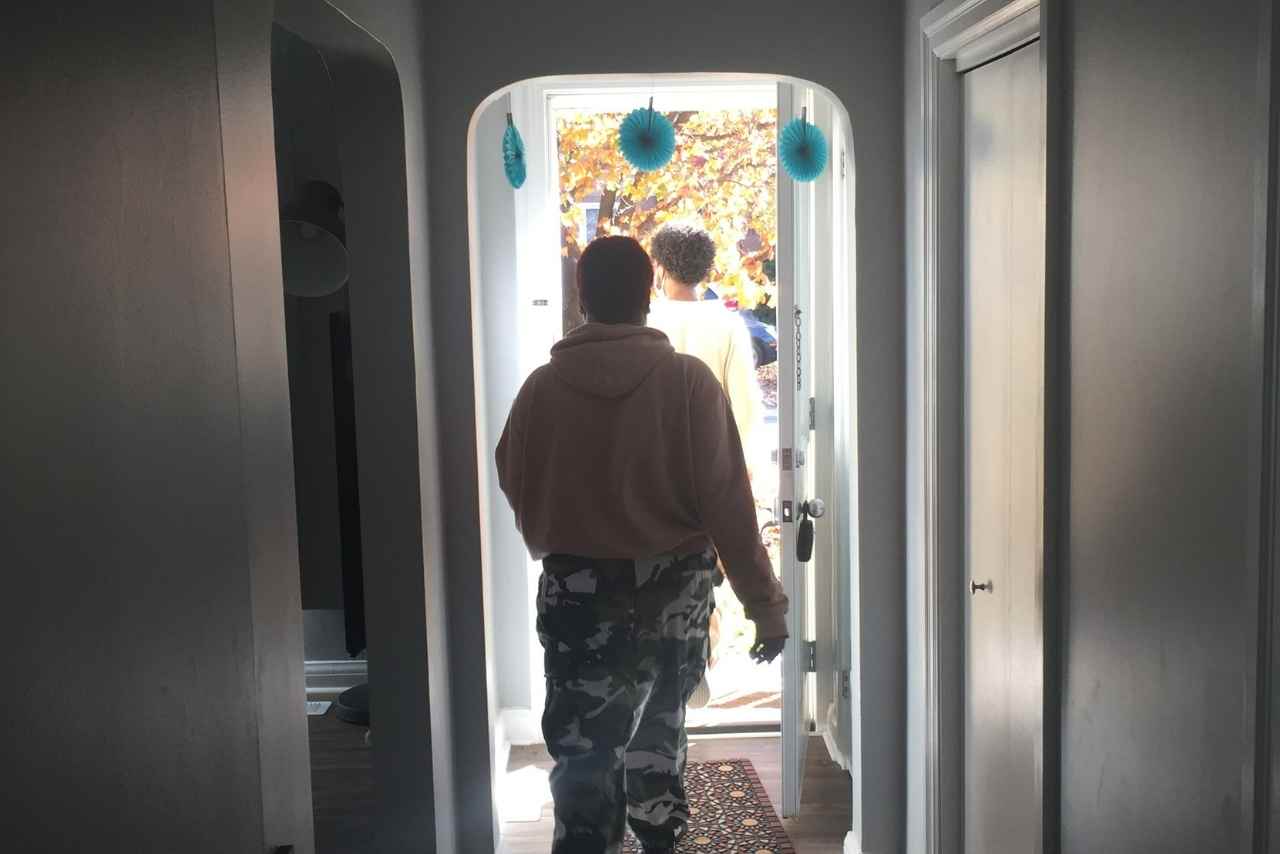Every night, more than 6,000 young people experience homelessness across Canada. For the youth we serve, leaving home is not an impulsive decision. “There is an idea out there that youth can just go back home, but a lot of youth are leaving unsafe conditions,” says David Channer, Program Manager for YOUth Belong Scattered Sites. More than half of homeless youth report that violence in the home has contributed to their homelessness. And 58 per cent of homeless youth have experience with the child welfare system.
While youth of all backgrounds can experience homelessness, youth who are Black, racialized, Indigenous, and/or 2SLGBTQ+ are over-represented. To help meet the needs of these youth, we centre equity and inclusion in the way we deliver our programs and services, including through our housing support.
Our approach acknowledges the systemic barriers racism, in particular anti-Black racism, have on the young people we support, which may be compounded for those with intersecting identities. We provide culturally responsive support to help youth find and maintain housing while developing a community around them.
“For youth coming into our housing programs, a big part of our work is helping them figure out their cultural, individual and community identities,” says Rita Asare, Senior Site Manager, YOUth Belong, Housing Supports and Stabilization Programs.
It’s critical that our housing supports also meet the unique needs of youth, which are different than adults experiencing homelessness. In the case of youth, housing is just one piece of the supports needed. Life skills programming, from helping the youth learn about house cleaning, cooking, laundry, home maintenance, and financial literacy to conflict resolution, self-esteem, and emotional control are critical to the continuum of care.
The supports youth receive centre and affirm their identities and cultures, taking into consideration the barriers they navigate in their daily lives. “We deal with the legacy of slavery, colonialism, and racism and how it impacts the experiences of the young people we support,” says Troy Samuel Logan, Program Manager, Housing and Life Skills. We work to ensure services respond to the specific needs of youth instead of compounding the barriers they are already facing.
Youth build a sense of agency and advocacy within our programs, along with a better understanding of their own identities and what they are capable of. “With the support from an amazing team, we continue to learn that the youth we assist have incredible skills, talents, interests, and passions,” explains Troy.

